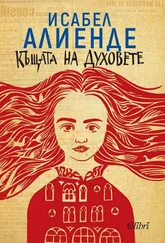France was watching in horror as the border became jammed with a crush of people that the authorities managed to keep barely in check by employing armed soldiers and the fearsome colonial troops from Senegal and Algeria, with their turbans, rifles, and whips. The whole country was overwhelmed by this massive influx of undesirables, as they were officially called. In the face of international protests, on the third day the French government allowed in women, children, and the elderly. Then came the turn of the remaining civilians and finally the defeated combatants, who marched across the border exhausted from hunger and fatigue, but singing and with their fists raised. They left mountainous piles of weapons on both sides of the border, before they were marched to hastily improvised concentration camps. Allez! Allez-y! the mounted guards goaded them on with threats and insults, lashing them with their whips.
After they had more or less been forgotten, the wounded who had survived were also brought into France. With them were Victor and the few remaining doctors and nurses accompanying them. They were allowed in more easily than the first waves of refugees, but didn’t receive any warmer a welcome. The wounded were tended in a rough and ready way in schools, railway stations, and even in the street, because the local hospitals couldn’t cope and nobody wanted them, even though they were the most needy among the hordes of “undesirables.” There were not enough resources or medical staff for so many patients. Victor was allowed to stay with the men in his care, and so could enjoy relative freedom.
—
AFTER SHE WAS SEPARATED from Aitor Ibarra, Roser was taken with other women and children to the camp at Argeles-sur-Mer, thirty-five kilometers from the border, where tens of thousands of Spanish refugees were already interned. The camp was fenced off on the beach, guarded by gendarmes and Senegalese soldiers. Sand, sea, and barbed wire. Roser soon realized that as prisoners they had to fend for themselves, and swore she would survive, come what may; if she had been strong enough to cross the Pyrenees, she could deal with whatever was thrown at her, for the sake of the child she was bearing, for herself, and for the possibility of meeting Guillem again.
The refugees were left out in the open day and night, exposed to the cold and rain. Hygiene was nonexistent: they had no latrines or drinkable water. The water that came from the wells they dug was salty, cloudy, and polluted with excrement, urine, and the corpses that were not carried away quickly enough. The women gathered in tight groups to defend themselves against the sexual aggression of the guards and some of the male detainees, who, having lost everything, no longer had even a sense of decency. Roser dug a pit with her hands to sleep in, protected from the tramontana, the icy wind that whipped up the sand. The stinging grains of sand cracked skin, blinded eyes, filtered in everywhere, producing wounds that grew infected. Once a day there was a distribution of watery lentils, and occasionally cold coffee or loaves of bread thrown from passing trucks. The men fought savagely to pick them up; the women and children got the crumbs if and when someone took pity and shared their ration. Between thirty and forty people died every day, first the children from dysentery, then the elderly from pneumonia, and later on the others, one by one.
At night somebody would stay awake to prod others every ten or fifteen minutes so that they could move and avoid freezing to death. One woman, who had dug her own nest next to Roser, woke up one morning embracing her dead five-month-old daughter, after the temperature had fallen below freezing in the night. Other refugees took the little girl’s body away and buried it farther down the beach. Roser spent the day with the mother, who said nothing and didn’t weep, but simply stared at the horizon. That night she went to the water’s edge and waded out into the sea until she disappeared. She was not the only one. Many years later, the exact statistics became known to Roser: almost fifteen thousand people died in those French camps, from hunger, starvation, mistreatment, and illnesses. Nine out of every ten children perished.
Eventually the authorities installed the women and children on another part of the beach, separated from the men by a double row of barbed wire. Material began to arrive to build huts. The refugees constructed them with their bare hands, and some of the men were sent to complete the roofs for the women. Roser asked to speak to the officer in charge of the camp and convinced him to organize the distribution of what little food there was so that the women would not have to fight for a few crusts of bread for their children.
Soon afterward, two Red Cross nurses arrived to give vaccinations and dole out powdered milk. They advised the mothers to filter water through cloths and boil it for several minutes before using it in their feeding bottles. They also brought blankets and warm clothing for the children, as well as the names of French families willing to employ some of the Spanish women as maids or in home industries. They usually specified: no children.
Through the Red Cross nurses, Roser sent a message to Elisabeth Eidenbenz, as Victor had instructed her to do. “Tell her I’m Victor Dalmau’s sister-in-law and that I’m pregnant.”
—
ELISABETH HAD BEEN WORKING first with the combatants on the Spanish battlefront and then, when defeat was imminent, with the flood of fugitives on their journey into exile. She had crossed the border into France wearing her white apron and blue cape without anyone being able to stop her. Roser’s message was among hundreds of pleas for aid she received, and perhaps she would not have given it priority had it not been for the name of Victor Dalmau. She remembered him fondly as the shy man who played the guitar and wanted to marry her.
The day after she got the message, she traveled to Argeles-sur-Mer to look for Roser Bruguera. Even though she knew how dreadful conditions in the camp were, she was shocked when she saw this disheveled, filthy young woman, ashen-faced and with purple lines under eyes inflamed by sand. She was so thin that her belly seemed to stick out directly from her skeleton. Despite her appearance, Roser met her standing erect, with a firm voice and the dignity she had always shown. Nothing in what she said revealed anguish or resignation, as if she were in complete control of her situation.
“Victor gave us your name, señorita. He said you could serve as a contact point for us to meet up again.”
“Who is with you now?”
“For the moment it’s just me, but Victor and his brother, Guillem, will be arriving: Guillem is the father of my child. Also a friend by the name of Aitor Ibarra, and possibly Victor and Guillem’s mother, Carme Dalmau. When they do get to France, please tell them where I am. I hope they find me before the birth.”
“You can’t stay here, Roser. I’m trying to help the pregnant women and those with breastfeeding children. No newborn child can survive in these camps.”
Elisabeth told her she had opened a house to shelter mothers-to-be, but as the demand was so great and space so limited, she had her eye on an abandoned mansion in Elne. Her dream was to set up a proper maternity home, an oasis for the women and children in the midst of so much suffering. But it would have to be built up out of the ruins, and that would take months.
“But you can’t wait, Roser, you must get out of here right away.”
“How?”
“The camp commander knows you’ll be coming with me. The truth is, the only thing they want is to get rid of the refugees. They’re trying to force them back into Spain, but anybody who can find a sponsor or a job can go free. So come with me.”
Читать дальше











